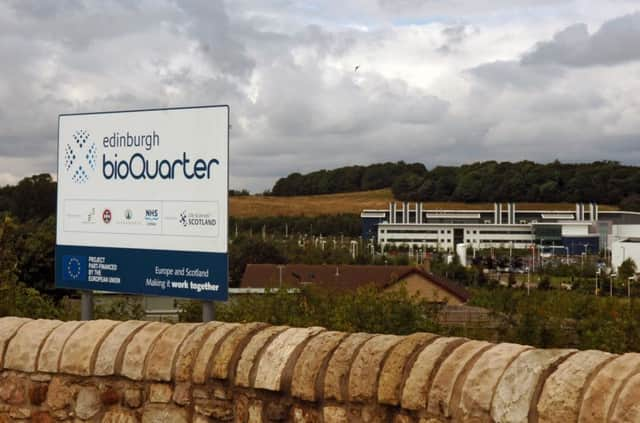Health care for future generations will improve as Scotland leads way in processing ‘big data’


THERE is a global data revolution taking place. Every day the amount and range of data being produced increases dramatically. This requires the development of new tools and techniques in an effort to keep track of it all. Because hidden within these huge data sets are new discoveries, emerging trends and novel interpretations that only become apparent when large amounts of data have been digested. Society is slowly waking up to the value of “big data” as it is known, and the opportunities that come from using it well.
Leading industrial and commercial organisations are already using supercomputing and big data analytics to take time and cost out of the research, development and innovation process. So too now are academia and healthcare – with part of the revolution happening in Edinburgh.
Advertisement
Hide AdAdvertisement
Hide AdBig data analytics is the process of extracting useful information from huge amounts of data. Tackling this challenge is becoming increasingly competitive, and organisations or countries that address it well can gain significant advantages. Companies are using computer generated modelling, simulations and big data analytics to create better products, get greater insights and gain competitive advantage over traditional development processes by getting to market sooner – with more innovative designs.
Traditional stability testing in the laboratory can be very time consuming, typically eight to 12 weeks. Comparable tests on a supercomputer take about 45 minutes. So addressing the challenge of big data is not a “nice to have” – it’s a fundamental enabling competence.
Scotland is fortunate to have some of the world’s best data science capabilities. The University of Edinburgh has just been ranked top in the UK, by some margin, for computer science and informatics in the latest REF 2014 exercise which ranks all UK universities by their research capabilities and impact. Scotland is also fortunate to have implemented and adopted nationwide electronic health records some time ago, providing us with the opportunity to combine anonymised health records with world-class data science capabilities to deliver real-time analysis for public service improvement, medical innovation and improved healthcare outcomes for patients whilst safeguarding their privacy.
Nationally, some £400 million has been invested to equip UK researchers in academia and industry to meet this challenge and take advantage of the opportunities. Edinburgh has received its share and is already deeply engaged with processing big data.
First on the scene was Archer, the UK’s most powerful “supercomputer”, capable of more than a million billion calculations every second. Hosted by the Edinburgh Parallel Computing Centre, it provides an invaluable resource for researchers who study problems with global impact.
More recently, the Economic and Social Research Council announced four administrative data research centres – one based at BioQuarter. These allow research into linked data sets, which are spread across different government departments, to be overseen by a single governance structure. The centres will make routinely collected administrative data accessible for research in an anonymised way, providing a sound evidence base to inform research and policy development, implementation and evaluation.
The Medical Research Council has recently invested £20m to establish a UK health informatics research institute, the Farr Institute, which aims to pioneer the anonymised use of patient and research data for medical research across a range of diseases. The institute’s independent research will support innovation in the public sector and industry leading to advances in preventative medicine, improvements in NHS care and better development of commercial drugs and diagnostics. It will also provide new insights into the causes of certain diseases for which there are currently no cures.
Scotland is represented in the Farr Institute by a number of Scottish universities and NHS Scotland, with a key hub at BioQuarter. In addition to health benefits for patients, the institute will help cement our reputation as a world leader in research using large electronic health data.
Advertisement
Hide AdAdvertisement
Hide AdOpened in late 2014, a new £11.3m innovation centre, Data Lab, is also dedicated to helping Scotland capitalise on the growing market in analytics and big data technology. Designed to revolutionise the way our industry develops and applies cutting-edge analytics and data science techniques to capture new market opportunities and boost productivity, the project will create around 345 new jobs and add some £155m of value to Scotland’s economy.
It will also transform the way industry, public sector and academia collaborate – a tenet central to everything we hold dear at BioQuarter. Data Lab builds on innovation from Scotland’s world-leading university sector and uses electronic patient records to drive improvements in health care in Scotland, to support innovation in the way we deliver clinical trials and to discover the best treatment options for future generations.
• Dr Mike Capaldi is director of commercialisation at Edinburgh BioQuarter